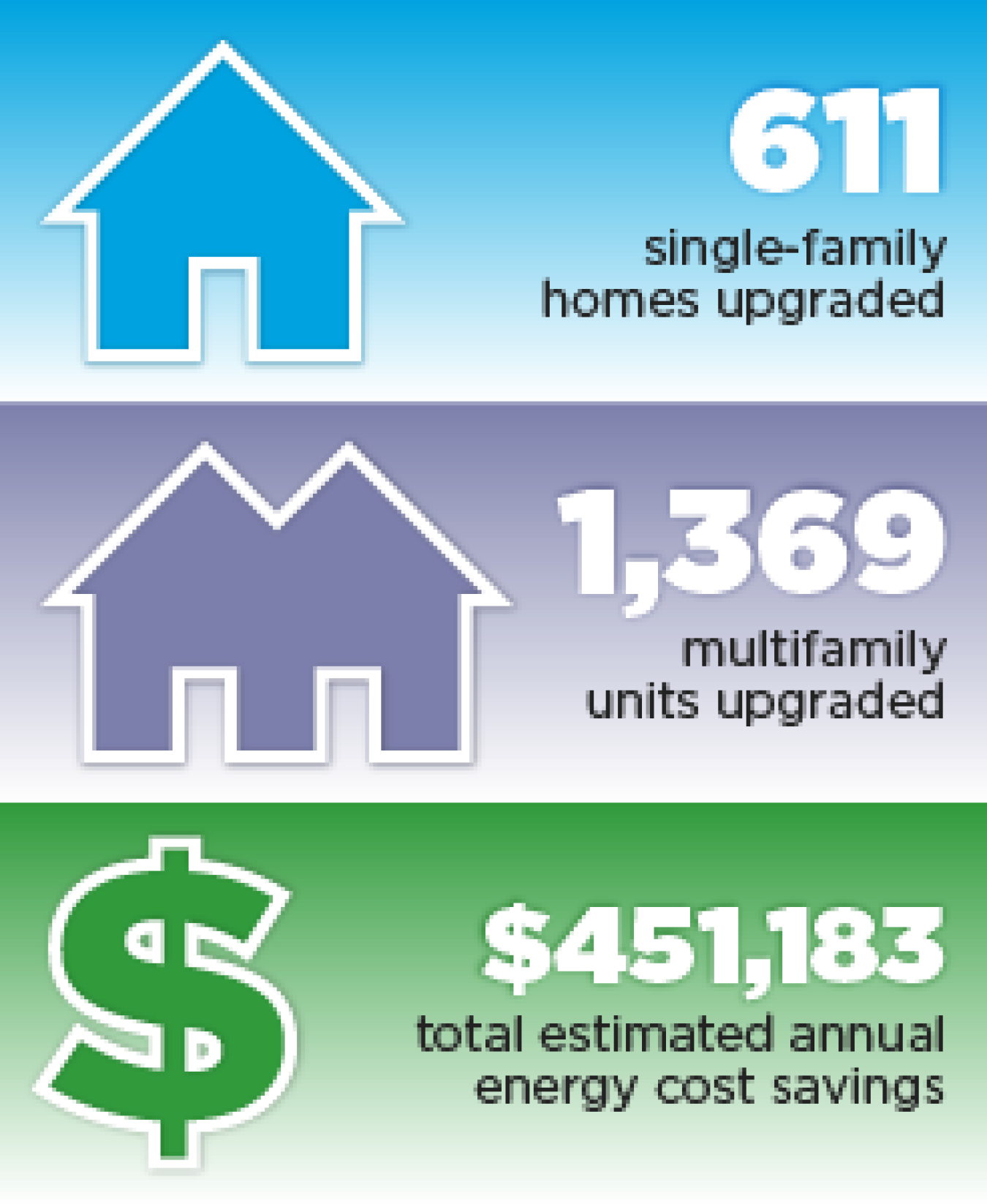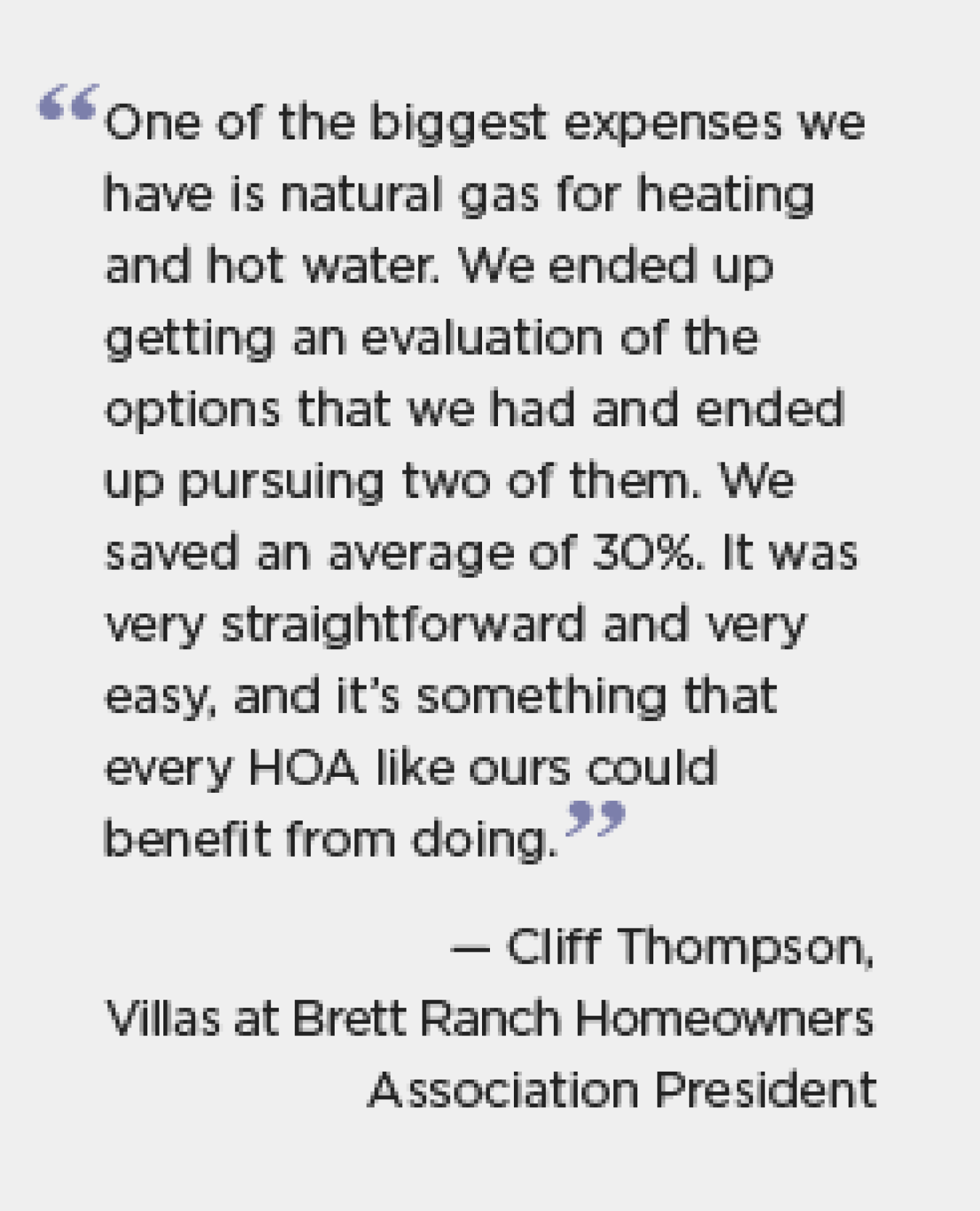
Colorado’s popular ski resorts attract a diverse population of vacationers and seasonal workers. Half of the homes in these resort communities are claimed as second homes, occupied only 25% of the year, and the rest are a mix of middle-income and multifamily rental properties. When it comes to reaching this diverse array of residences with an energy efficiency program, targeting the various audiences requires flexibility.
Using $4.9 million in seed funding from the U.S. Department of Energy's Better Buildings Neighborhood Program, the counties of Eagle, Pitkin, and Gunnison in Colorado launched Energy Smart in January 2011. The program’s Energy Resource Centers served as one-stop shops, offering residents of the three counties access to expert energy advisers, affordable financing, and a skilled workforce of certified contractors.
Defining Characteristics
Energy Smart Colorado crafted its program to address the varied needs of the area’s diverse population and to stimulate the area’s underdeveloped home performance market. The program, which aimed to improve efficiency in at least 10% of the region’s homes, focused on increasing demand for home upgrades by making them appealing, simple, and affordable. The program tackled this challenge by opening an Energy Resource Center in each county to provide energy efficiency outreach, education, and advice directly to the community, in addition to offering reduced-cost home energy assessments, rebates, and low-interest financing to incentivize homeowners to complete upgrades.
The program also focused on training a qualified workforce to meet the rising demand for upgrades. Energy Smart Colorado offered subsidized workshops and certification classes to encourage contractors to enter the home performance market. The program also helped contractors find work during the economic recession by increasing the annual number of homes receiving energy efficiency services tenfold through its residential outreach and services. Read more in the Energy Smart Colorado final report.
Accomplishments
(July 2010 to March 2014)


Approaches Taken
As one of the country’s first rural, multijurisdictional consortia to implement a comprehensive residential energy efficiency program, Energy Smart Colorado learned how to motivate the region’s diverse population through education and outreach, a trained workforce, and financing and incentives.
- Residential Program Design: When homeowners enrolled in the program, they were assigned to a Building Performance Institute (BPI)-certified Building Analyst, who performed a home energy and safety assessment at a reduced price of $100 or less through partnerships with local utility companies. Energy Resource Center staff connected homeowners with qualified contractors and provided rebates and low-cost financing to help pay for recommended upgrades.
- Marketing and Outreach: Each county tested different community outreach methods. Pitkin and Gunnison Counties focused on homeowner association meetings and community outreach events such as “Caulk-us Parties” and “Power Hours,” which provided energy efficiency education and allowed homeowners to share the results of their home energy improvements. In Eagle County, the program relied mainly on newspaper and radio advertising to drive interest. Participating contractors were given yard signs, truck magnets, and work attire with the program’s distinctive logo to make the Energy Smart Colorado brand more recognizable.
- Financing: In addition to providing rebates on energy assessments and upgrades, Energy Smart Colorado set up a revolving loan fund through Funding Partners for Housing Solutions, a community development financial institution, to provide low-interest loans of up to $30,000. The program also offered on-bill financing through select local utility companies and energy savings performance contracts for affordable housing rental properties and multifamily complexes.
- Workforce Development: Energy Smart Colorado partnered with Colorado Mountain College to offer subsidized BPI certification and technical training courses to program staff and local contractors. The program also sponsored education seminars, including a workshop on home energy assessments led by the chief executive officer of BPI, and organized monthly contractor meetings to share best practices and program information. In addition, Energy Smart Colorado set up an equipment loan program to help new contractors overcome the home performance market’s expensive barrier to entry.
Key Takeaways
Throughout the grant period, Energy Smart Colorado not only achieved a record number of home energy assessments and upgrades in the region, but also received high satisfaction ratings from its customers. Some of the lessons learned that led to the success of the program include:
- Help contractors grow with the market. Energy Smart Colorado had trouble finding qualified contractors to perform upgrades because of the small size of the home performance market. To attract contractors to the market and reduce the shortage of workers, the program provided up to $1,500 to cover training and certification, held contractor outreach and education events, and purchased upgraded equipment to loan to new contractors.
- Forge utility partnerships early. By not working with utility companies at or before the launch of its program, Energy Smart Colorado unintentionally created a competitive atmosphere with utilities offering similar programs. Although the program eventually gained their trust and overcame this impression, many utilities continued to offer redundant in-house services even after partnering with the program.
- Understand customer motivation. When loan uptake was slower than expected, Energy Smart Colorado took a lesson from car dealerships and played up the “shiny new car” aspect of a home energy upgrade. By advertising the benefits of a home upgrade instead of the details of the program’s financing offer, Energy Smart Colorado increased interest in comprehensive energy upgrades and raised uptake of its low-interest loans.
- Anticipate delays. As the program worked with a combination of government, nonprofit, and private sector groups, the steps and length of time required to create partnerships and complete agreements differed widely between groups. Learning to manage and adapt to process delays was critical in order to continue leveraging resources from its partners.
- Educate before marketing. While promotional campaigns were effective after the program was well-established in the community, incentives offered in early campaigns caused confusion instead of action, because contractors and the public knew little about the program.
- Generate a sense of urgency. Many residents were interested in the program but hesitant to sign up, so the program used limited-time promotional campaigns to spur indecisive homeowners into action.
- Create visible rewards. Eagle County launched a new “Energy Smart Home” designation to recognize homes that completed both an assessment and upgrades. Participants were awarded a medal to display in their homes with the designation, which helped raise neighborhood awareness of energy efficiency and provided extra motivation for neighbors to participate.
What's Next?
Energy Smart Colorado will continue to provide energy efficiency services to utilities and communities, including easy access to information, a network of qualified professionals, and Energy Resource Centers to connect residents with incentives, rebates, and loans:
- Energy Smart Colorado is transitioning to a nonprofit entity funded mainly by local and regional governments. The new organization will expand outside the original three counties to offer the same services to communities across Colorado.
- To maximize the effectiveness of the revolving loan fund during the post-grant transition period, the program will use some of the funds to support centralized operations and to provide mini-grants to new or struggling local partners to help develop the program in their communities.
- Energy Smart Colorado is developing an initiative with Holy Cross Energy, a local utility, to provide energy coaching to small- and medium-sized businesses. The program is also compiling and packaging an Energy Smart assessment service for commercial buildings.
- Energy Smart Colorado plans to support ongoing contractor meetings, trainings, and workshops to continue to grow the region’s workforce. In response to contractor requests, the program is also working to develop more consumer-friendly home energy assessment support.
Additional Resources
Reports & Case Studies
Videos
